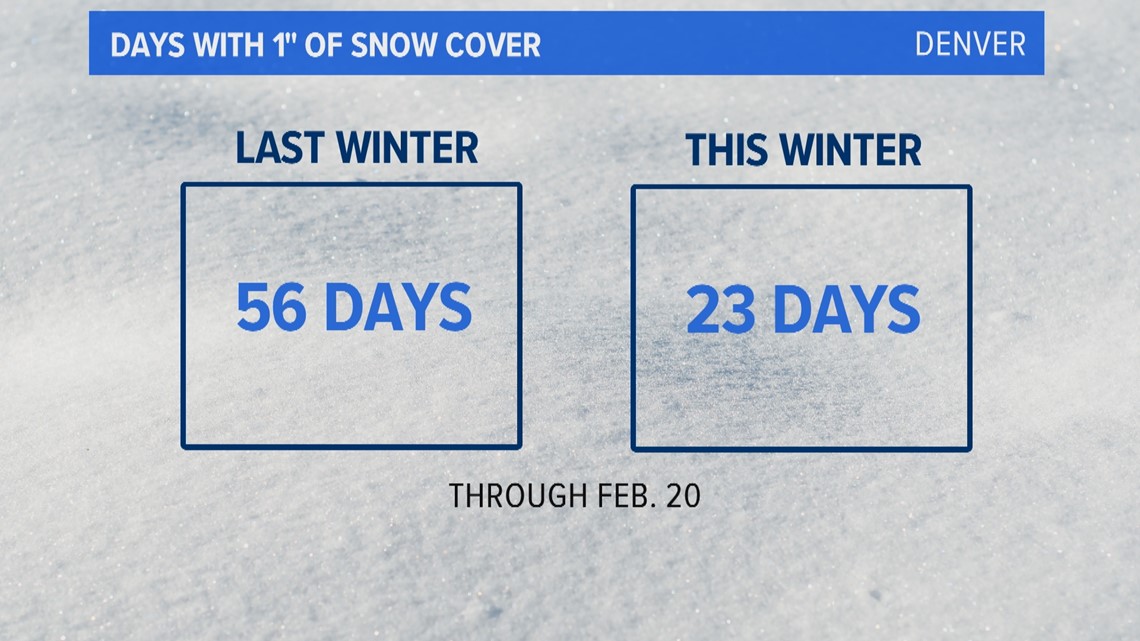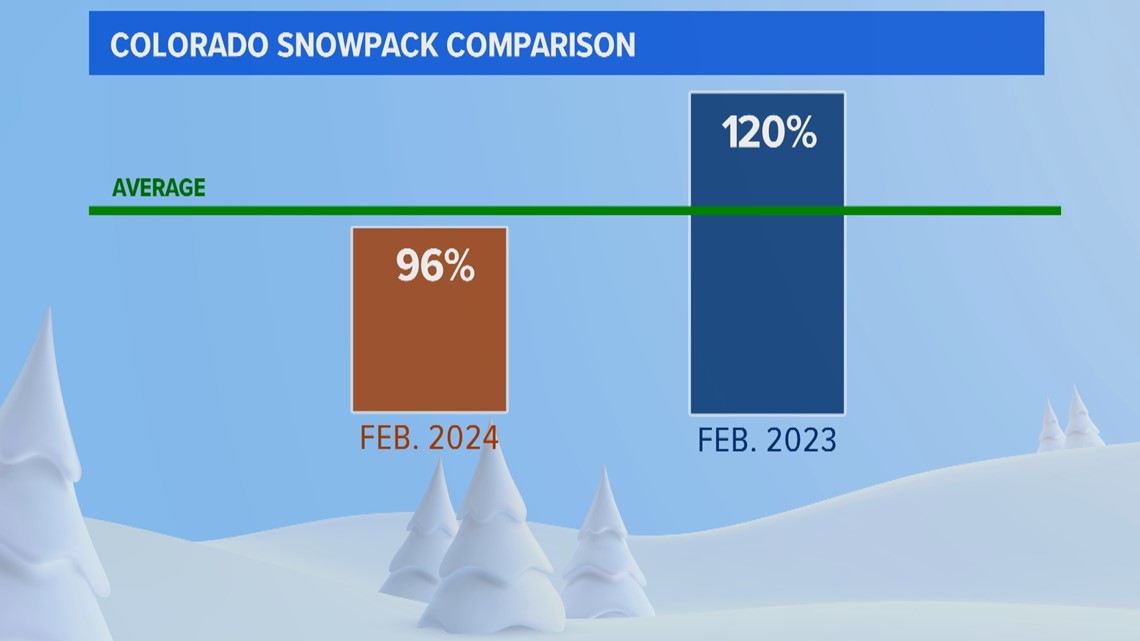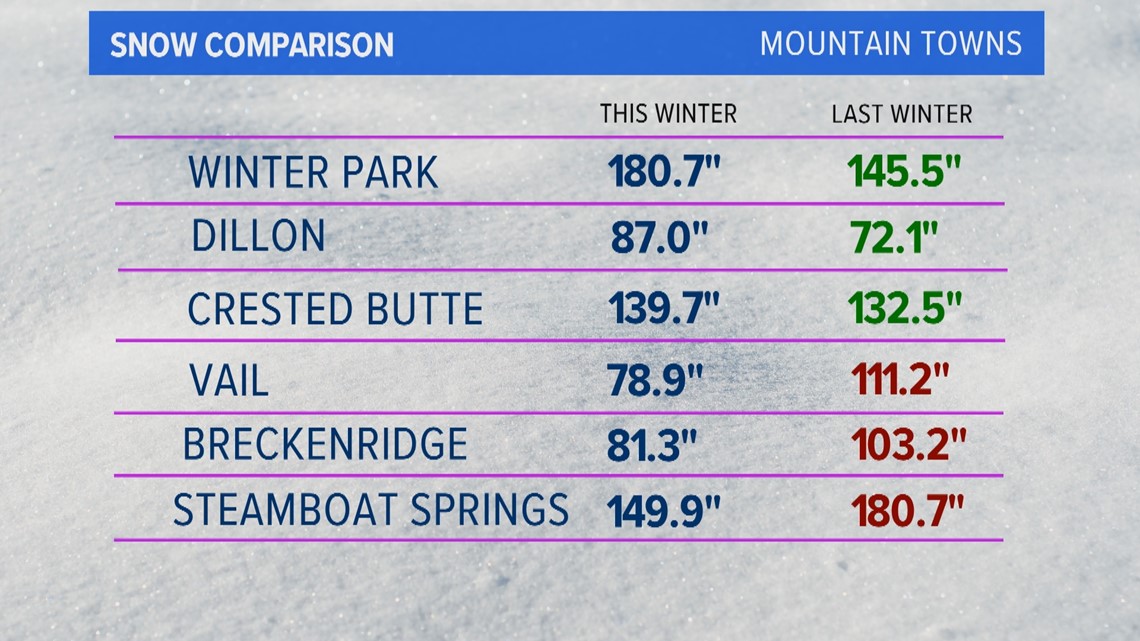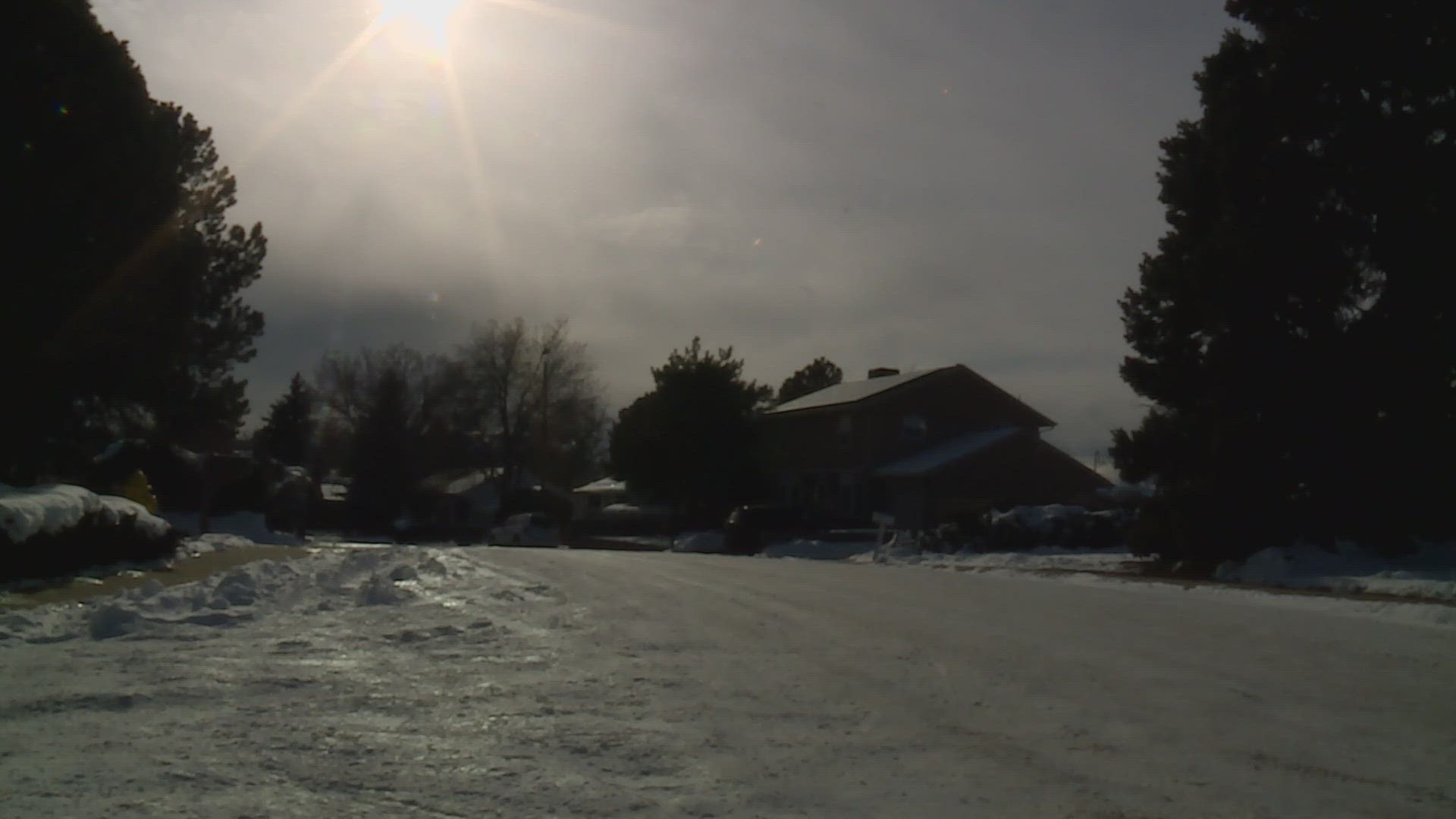DENVER — Blues skies and relatively warm temperatures have followed most of the winter storms on the Colorado Front Range this winter, which means the snow cover has not lasted very long.
That is a pretty normal winter scenario, but we should not take that for granted because there are some winters where the sun does not pop out after snowstorms – like last year.
The winter of 2022-2023 was the cloudiest winter on record for the Front Range and most of the mountains.
And by Feb. 20, there was at least 1 inch of snow sitting on the ground in Denver for 56 days last winter compared to just 23 days this season. The total snow last season at this point was more than 40 inches (40.5") compared to just about 27 inches this winter (27.1").


That 40 inches of snow in Denver last season was the second biggest snow total over the last 10 years. The average by the end of February is 34 inches.
Mountain snowpack
Another place where this winter has been drastically different compared to last season is the high mountain peaks. Statewide snowpack has been below average now for 110 consecutive days and Nov. 3 was the last time it was up to at least average.
It is only slightly below the average but compare that to a very snowy winter last season where statewide snowpack was 20% above average on Feb. 20 and on the way to setting records in some basins.
The storm coming Wednesday is only expected to produce moderate snow totals of 3-10 inches in the mountains which will likely just be enough to maintain the current slightly below-average standing.
There is more potential showing for a storm coming around next Tuesday. That could be the moment Colorado finally gets back to average snowpack or maybe even slightly above average.


Mountain towns
And the mountain towns have also seen average snow this winter but with a little more variability than the peaks. Winter Park has had the most snowfall, running about 3 feet ahead of last season's pace.
Dillon and Crested Butte have had slightly more snow than last winter while Vail and Breckenridge have had a little less.
And while it’s been another snowier-than-average winter in Steamboat Springs, they are still more than 4 feet behind last year's epic snow season.


SUGGESTED VIDEOS: Colorado Climate

